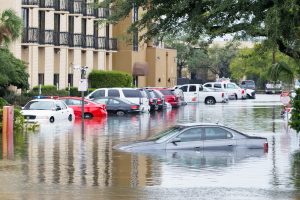
Citing a report that anticipates economic losses from extreme weather events will exceed $300 billion in 2017, U.S. Sen. Susan Collins (R-ME) said on Tuesday that lawmakers cannot ignore the impact of climate change.
The Government Accountability Office (GAO) report, which was requested by Collins and U.S. Sen. Maria Cantwell (D-WA), concluded that the frequency and intensity of extreme weather events will continue to rise, costing taxpayers more than $1 trillion by 2039. And, if patterns seen in 2017 continue, the costs of hurricane and wildfire seasons could exceed $6 trillion in 20 years.
“We cannot ignore the impact of climate change on our public health, our environment and our economy,” Collins said on the Senate floor. “This nonpartisan GAO report Sen. Cantwell and I requested contains astonishing numbers about the consequences of climate change for our economy and for the federal budget in particular. Our government cannot afford to spend more than $300 billion each year in response to severe weather events that are connected to warming waters, which produce stronger hurricanes.”
The report, titled “Climate Change: Information on Potential Economic Effects Could Help Guide Federal Efforts to Reduce Fiscal Exposure,” recommends that the federal government use available data to identify significant climate risks and to establish a strategy to guide federal resiliency investments to protect against losses in future disasters.
“In Maine, our economy is inextricably linked to the environment,” Collins said. “We are experiencing a real change in the sea life, which has serious implications for the livelihoods of many people across our state, including those who work in our iconic lobster industry.”
Collins said she hopes the GAO report will encourage officials to look at the economic impact of climate change and to use what is known about climate risks to inform federal policy. Congress should prioritize improving access to information on the risks of climate change for businesses and local governments, she added.
The federal government has incurred more than $350 billion in direct costs over the last decade, including $205 billion for domestic disaster response and relief, $90 billion for crop and flood insurance, $34 billion for wildfire management and $28 billion for maintenance and repairs at federal facilities, the GAO report found.
“GAO recommends that the appropriate entities within the Executive Office of the President (EOP), including the Office of Science and Technology Policy, use information on potential economic effects to help identify significant climate risks and craft appropriate federal responses,” the report said.



